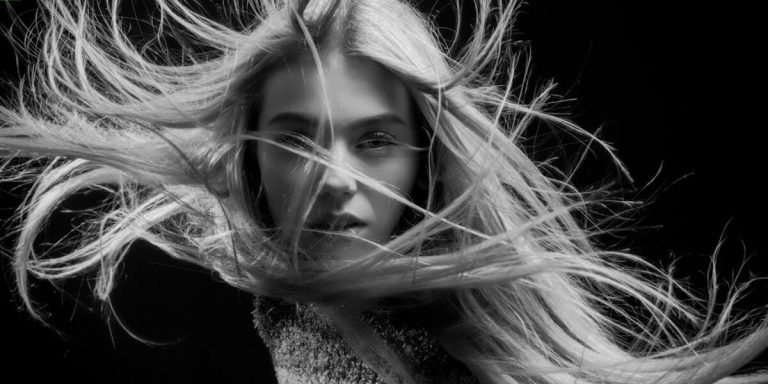Menopause Hair Loss Treatment: A Comprehensive Guide for Women
Experiencing hair loss during menopause can be a distressing experience. In such instances, exploring effective menopause hair loss treatment options becomes essential to regain control over your crowning glory and maintain self-confidence. Many women remain unaware of the connection between menopause and thinning strands which are frequently related due to hormonal fluctuations in their body.
The second phase of life brings along not only wisdom but also some unwelcomed changes like wrinkles, hot flushes, night sweats and unfortunately for many- noticeable hair fall. Understandably this could affect one’s psychological well-being making it necessary to tackle head-on with safe yet powerful treatments designed specifically for post-menopausal women suffering from patterned baldness or diffused shedding.
Did you know?
Little known fact: Menopause induced hair loss, scientifically termed as ‘androgenetic alopecia’, is attributed to decreasing levels of estrogen and progesterone – vital for hair growth and retention.
Understanding Menopause-Related Hair Loss
Understanding one’s journey with menopause-related hair loss begins by exploring its origins. Hair loss during menopause is largely attributed to hormonal changes that occur in a woman’s body. Primarily, the decrease in estrogen production leads to an imbalance between estrogen and testosterone levels.
This disproportion can cause more male hormones or androgens present which often lead to thinning of hair on your scalp.
Furthermore, fluctuations in hormone levels can have significant effects on the growth cycle of your hair follicles leading them into a resting phase earlier than usual causing progressive shrinkage over time, translating into less dense and thinner strands. Understanding this process gives light as why some women may experience extensive shedding or find their once luscious locks beginning to feel less voluminous post-menopause – it isn’t just aging but tied deeply within female biology.
Now onto treatment options for menopausal related hair loss – several paths could be explored depending upon individual needs and health condition while keeping side-effects minimum if not nullified completely. Hormone replacement therapy (HRT) offers potential benefits by replenishing diminished estrogen levels; nevertheless consultation with healthcare provider remains crucial due its linked risk factors such as breast cancer etcetera with prolonged use.
Over-the-counter topical treatments like Minoxidil are FDA-approved proven efficacies in promoting re-growth when applied regularly directly onto affected areas providing non-surgical alternative solution worth considering especially targeting specifically patterned baldness whether caused genetically or induced through varying biological stages including menopause.
Causes of Hair Thinning During Menopause
During menopause, many women experience hair thinning and loss. This can occur due to a number of factors related to the hormonal shifts that happen during this stage in life.
One primary reason for hair thinning during menopause is the drop in estrogen levels. Estrogen plays a crucial role in promoting healthy hair growth. When its level declines, so does your body’s ability to regenerate strong, thick strands of new hair.
Increased testosterone also contributes to this problem. With lower amounts of estrogen circulating within your system, testosterone becomes more dominant. Testosterone converts into dihydrotestosterone (DHT), which shrinks follicles and makes it difficult for healthy hairs to survive.
Hormonal Changes and Their Impact on Hair Health
The journey to menopause can often bring about a series of bodily changes, one of which is hair loss. A significant factor that contributes to this unsettling phenomenon is the hormonal shift women experience during this phase. Understanding these hormones and their impact on our tresses could help in successfully battling menopause-induced hair thinning.
A key hormone worth noting here is estrogen, famously known as the ‘female’ hormone. High levels of estrogen contribute largely to growing thick, lush strands pre-menopausal years. However, during menopause, these levels take a plunge resulting in weaker follicles and shedding hair.
On another front we have Androgens – ‘male’ hormones present in small amounts within females too causing major havoc for your locks around perimenopausal period when they get unfettered access due to decreasing concentrations of female sex hormones like Estrogen.
Modern Treatments for Menopausal Hair Loss
In the realm of modern medicine, there’s been significant evolution in treating menopausal hair loss. It is a common issue that many women face as they transition into this new phase of life and various treatments have emerged to effectively combat it.
One such treatment that stands at the forefront is hormone replacement therapy (HRT), which aims at balancing hormones under medical supervision. Menopause triggers hormonal fluctuations leading to diminished estrogen levels which are linked directly with hair thinning or loss. HRT helps balance these hormones thereby promoting healthier hair growth.
Another impactful solution lies within lifestyle modifications including nutrition regimens rich in vitamins like Biotin, Iron and Zinc essential for optimal hair health. Regular exercise routines also help by boosting blood flow to nourish scalp cells while stress management techniques such as meditation can limit physiological impacts on your body including potential adverse effects on the scalp.
Aesthetic options illustrating modern advancements include low-level laser therapy (LLLT). This non-invasive light-based technology stimulates cellular activity slowing down any impending balding and encouraging fuller locks over time.
Topical applications remain popular too due eccentricities like essential oils infused with ingredients known for their potent benefits combating alopecia namely peppermint oil, lavender among others administered predominantly via skin-friendly carrier oils onto one’s scalp.
It should be noted every person has unique circumstances thus responses may vary hence consulting healthcare professionals remains crucial when adopting any form of remedy related to personal care especially regarding something sensitive such as menopausal hair loss.
The Role of Topical Minoxidil in Regrowth
Topical Minoxidil has been a revolutionary discovery in the fight against menopausal hair loss. As one of the most recommended treatments by healthcare professionals, it plays a significant role in promoting hair regrowth for women going through this transitional period.
The active ingredient, Minoxidil is an over-the-counter medication that works by stimulating your scalp’s follicles to promote new growth and prevent further loss. It originally started as a treatment for high blood pressure; however, its surprising side effect of increasing hair density became highly sought after.
One standout benefit of topical Minoxidil is it does not directly interact with hormonal changes caused during menopause- making it safe and effective for long-term use without systemic side effects. Additionally, unlike other medications which require prescription, minoxidil can be easily accessed from any pharmacy- providing hassle-free access to those who need it immediately.
Topical Minoxidil treatment, while accessible and easy to use, comes with important usage instructions:
1. Cleanse your scalp properly: This helps prepare your pores before application.
2. Use correct dosage: Usually 1ml applied twice daily leads to visible results within four months or less.
Low-Level Laser Therapy as a Non-Invasive Option
Low-Level Laser Therapy (LLLT), a modern breakthrough in hair loss treatments, is gaining traction for menopausal women as a non-invasive option. Most notable about this treatment is its ability to help curb the natural thinning and shedding associated with hormonal changes during menopause – an aspect that positions LLLT prominently within “menopause hair loss treatments”.
Let’s delve deeper into what makes Low-level laser therapy so attractive.
Firstly, it operates on the principle of photobiomodulation. Essentially, low-level lasers stimulate cellular activity at the follicular level by introducing mild radiation direct to scalp tissues. This results in rejuvenating dormant or weakened hair follicles leading to thicker strands over time.
In terms of safety and convenience factors too, LLLT scores high points among users. Administered through devices such as combs or helmets fitted with tiny lasers emitting light wavelengths specific for scalp stimulation—users can comfortably integrate sessions into their routine without disrupting normal activities.
A reassuring factor when considering any treatment lies inevitably in scientific endorsements- here again LLLT features impressively! Numerous studies affirm not only its efficacy but also underline minimal side effects witnessed among users post-treatment; addressing prevalent concerns related to invasive corrective procedures like transplants.
Lifestyle Adjustments to Prevent Further Hair Loss
As one navigates the transitionary phase of menopause, it’s not uncommon to observe hair thinning or loss. However, there are lifestyle adjustments that can significantly mitigate this unwelcome change and help maintain luscious locks. The utilization of specific treatments targeted at menopausal women experiencing hair loss will also be beneficial.
Start by evaluating your current dietary habits. An optimal diet for preventing further hair loss should contain a balanced blend of vitamins A, C and E; minerals such as Zinc and Iron; B-vitamins including biotin which is often coined as the ‘hair growth vitamin’. Equally important is regular hydration – drinking plenty of water helps keep our follicles agile aiding in stronger hair roots leading to lesser breakage/liberation into combs or pillows.
Another effective but remarkably overlooked strategy involves managing stress levels effectively since chronic stress tends to exacerbate any condition including alopecia (medical term for baldness). Be it through yoga sessions, retreats in nature’s lap or simply indulging in an engaging book/music – whichever method works best personally; incorporating them diligently into daily routine would positively impact overall well-being along with arresting surplus shedding off your mane.
Nutritional Strategies to Strengthen Hair Follicles
Understanding menopause and its impact on hair health leads us to understand that nutritional strategies play a crucial part in strengthening the hair follicles. With research showing how various elements of our diet can influence hair growth, let’s focus on specific food items and dietary supplements known for promoting healthier, stronger strands.
1. Include More Protein-Rich Foods: Amino acids derived from proteins are building blocks for your body – including your locks! Chicken, eggs, fish like salmon & tuna or plant-based protein foods such as lentils should be included in your everyday meals for supporting robustness of those precious follicles.
2. Eat Iron-enriched Food Sources: Iron helps red blood cells carry oxygen throughout the body which is essential for proper functioning- this includes promoting healthy hair growth! Spinach, beetroot juice and legumes being iron-rich can render wonders!
3. Embrace Omega-3 Fatty Acids: These fats have antioxidant properties helping you combat inflammation – an underlying cause behind many forms of female pattern baldness during menopause phase. Try incorporating chia seeds or flaxseeds into salads and smoothies!
4. Vitamins Are Vital Too!: Vitamin C enhances absorption of iron while B-vitamins speed up metabolism hence their consumption becomes significantly beneficial with respect to preventing further loss due post-menopausal changes.
Stress Reduction Techniques That Support Scalp Health
It’s no secret that stress is a significant contributor to hair loss, particularly in menopausal women. As part of your strategy for combating menopause hair loss treatment, incorporating effective stress reduction techniques can be beneficial not just for regrowth of lost tresses but also in promoting overall scalp health.
Mindfulness and meditation are two powerful tools proven successful in reducing stress levels. Regular practice fosters emotional wellbeing and has been reported to enhance healthy follicle stimulation promoting new growth—akin to nurturing the roots when awaiting flourishing blooms.
Incorporating regular exercise into your routine cannot be emphasized enough—it sparks adrenaline production which improves blood circulation throughout the body including around the scalp area too. Healthy blood flow can aid delivery of necessary vitamins directly onto our mane’s doorsteps providing them nutrients required for potent growth.
A few minutes spent basking under warm sunlight each day could have soothing effects on mind as well its key role fostering vitamin D synthesis—an important player allowing calcium absorption needed by thriving locks. Be mindful though about overexposure leading potentially towards overheating or harmful UV radiation exposure both damaging follicles negatively impacting their work producing luxuriant strands!
Conclusion
In conclusion, menopause hair loss treatment isn’t just a necessity—it’s an act of self-love and care. It mirrors the commitment you have to your overall wellness during this significant phase in life. Remember that armed with knowledge and the right treatments, there is no hill too steep for us women to climb!
Don’t let menopausal hair loss dampen your spirits—tackle it head-on! Our website has so much more information on hair loss treatments alongside insightful resources you can draw upon. Embrace this journey as another milestone towards becoming stronger, healthier, happier – because every strand counts!







